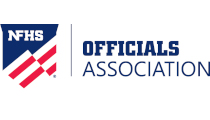
On your way out for the day, it stares you down from the kitchen counter: It is the sports section of the morning newspaper, complete with the weekly rundown of high school news, notes, conference standings and a listing of individual statistical leaders.
You contemplate grabbing it to research the teams playing later that evening in the game where you will serve as the lead official. Knowing a little about each team is all a part of the preparation, right?
Yet, you hesitate.
Maybe doing some pregame research isn’t the wisest thing to do. Will biases be implanted in your officiating mind if you see who leading scorers are or who is a tough and rugged player? You notice a little note, too, that Coach Jones is coming back from a one-game suspension for being issued too many technical fouls. You had Coach Jones in a contest earlier in the season. Have you formed an opinion about him or her?
The value of doing your pregame homework continues to stir debate.
“If you are a newer official or new to a particular conference, it is a good idea to acquaint yourself with teams,” says Dan Block, an assistant assignor with Minneapolis Officials Association in Minnesota. “Looking at records, looking at stats gives you an idea of what you are in for. Veterans have been around long enough that they usually have a feel for these things.”
Stillwater, Minn., resident Bryan Kemnetz, who has officiated basketball in Minnesota and Wisconsin for nearly three decades, doesn’t advise extensive pregame research.
“You want to be impartial from the start,” he said. “You learn fairly quickly who the star players are, anyway, when the game begins. In our pregame meeting, we might find out that each team has great players that are “bigs.” That’s OK. We want to be on our toes and ready for that.”
Longtime Minnesota official Tony Day, who works football in the Mid-America Conference, is an advocate of researching opponents, especially at the college level.
“I am used to that,” he says. “It’s kind of fun. Information beforehand, shared with the crew, is an important thing. Knowledge is a good thing.”
How about previous issues with a coach?
“It’s a clean slate,” Day said.
“New game, new page,” Kemnetz echoed.
Tim Leighton
Most Recent Articles
- nfhs news NFHS Celebrates National Girls and Women in Sports Day
- nfhs news NFHS Learning Center Delivers 25 Millionth Course
- Track & Field/Cross Country article Effective Communication with Athletes and Coaches
- nfhs news Player Equipment Changes Highlight 2025 High School Football Rules Revisions
- Player Equipment Changes Highlight 2025 High School Football Rules Revisions






